A Place to Call Home

Chico State Rises to Meet Growing Demand in Student Homelessness
STORY BY ALMENDRA LAWRENCE and SEAN MURPHY
Veronica Aguilar sees two paths with dramatically different outcomes. One where her academic career is derailed by substance abuse and limited resources. And one where she is surrounded by support that enables her to complete her bachelor’s degree in social work and pursue a master’s.
She doesn’t have to imagine what each path holds for her. She’s already experienced both.
“It was something I had given up on—I never thought it was possible,” Aguilar said reflecting on her May 2023 graduation from Chico State.
The 41-year-old credits her second chance at a college degree to a strong network of services at Chico State, particularly the Basic Needs Project’s Rapid Re-housing program, which helped her secure safe housing. Aguilar’s story also reflects the nationwide issue of student homelessness—a challenge that lacks visibility and resources.
On any given day, 1 in 32 Chico State students are uncertain about their housing prospects. They may be couch surfing, staring at an eviction notice, or living in a local shelter. They each have two things in common—housing insecurity and the dream of a college degree. Student homelessness is not unique to one state, city, or campus. It’s growing nationwide and is fueled by a lack of affordable housing inventory, rising costs of living, the availability of sufficient mental health services, and other adjacent crises.
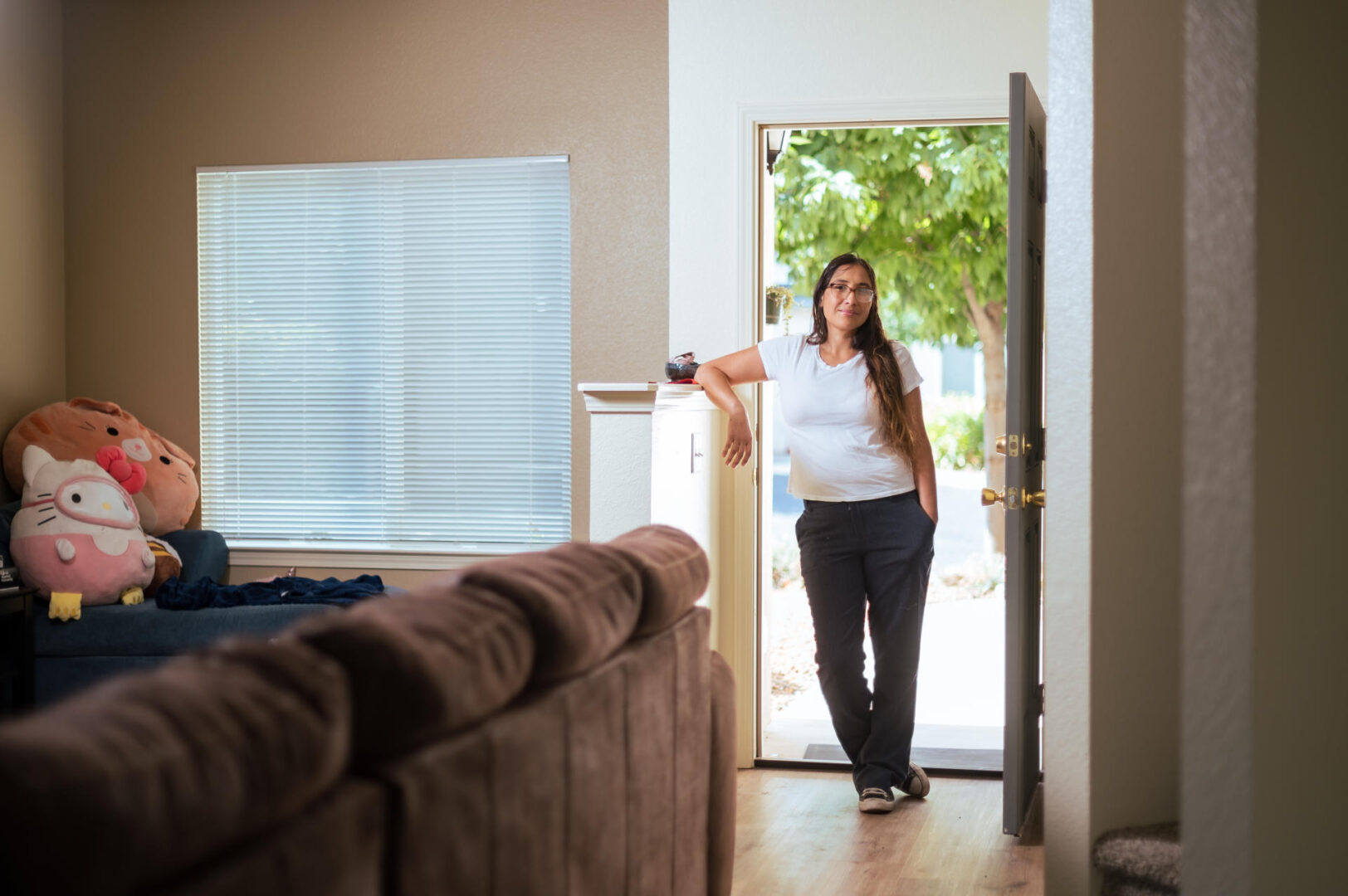
To face it, Chico State is leading with access in mind, while breaking down barriers and stigmas that otherwise stand in the way of student success. Basic Needs introduced its first emergency housing services in 2016 with support from University Housing, providing a five-bed emergency shelter home and transitional housing through a partnership with a community-based housing provider.
Since then, Basic Needs has assisted more than 300 students experiencing homelessness and hundreds of others experiencing displacement, unsafe housing, and potential homelessness by way of eviction. That initial collaboration planted the seed for what has become one of the most successful rapid re-housing programs in the entire California State University system.
There is no one-size-fits-all reason why a student requires rapid re-housing. Homelessness and housing insecurity always depend on individual circumstances. And each of these scenarios can be caused by a range of stressors that make the simple act of showing up to class each day a challenge. What’s true for every case is that Chico State students are able to receive personalized care that begins with listening and leads to action.
In recognition of the positive impact of Chico State Basic Needs and value in its growth, the CSU awarded the program $220,000 in 2022 through the system’s College-Focused Rapid Re-housing grant. Working together with regional nonprofits Chico Housing Action Team (CHAT) and True North Housing Alliance, as well as local property management companies, Basic Needs provides students with transitional and permanent housing, as well as the rental assistance grants necessary to secure housing or prevent the imminent loss of housing.
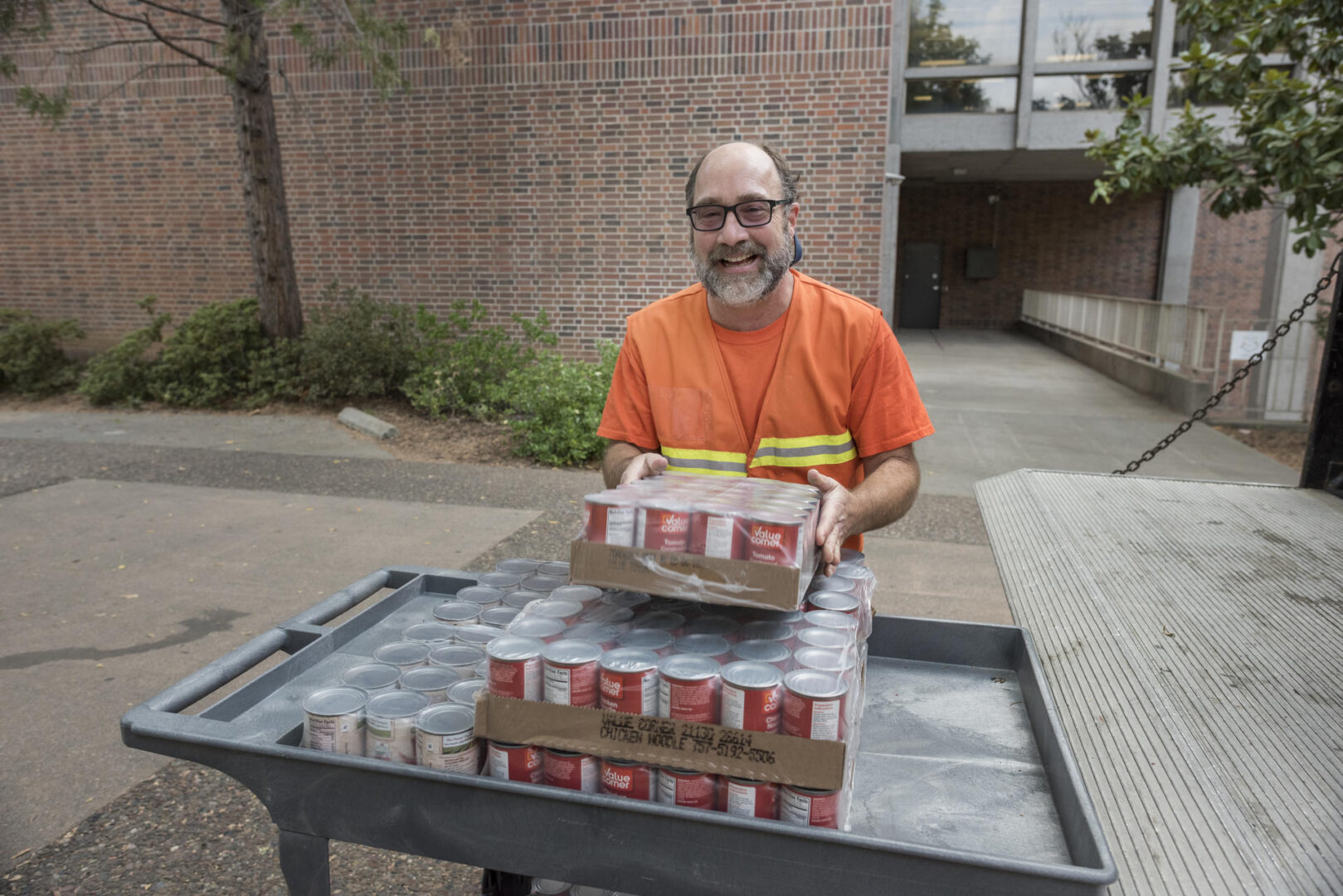
“We started the Basic Needs Project as a food pantry in 2013,” said Joe Picard, program director. “The CSU challenged us to go beyond food insecurity. We didn’t have any additional funding for that, but we began mobilizing to house students who were experiencing homelessness.”
Ten years later, he marvels at its success. During the 2022–23 school year, Basic Needs provided case management for 566 students, housed 89 students, assisted more than 135 students with housing navigation services, and provided $203,185 in rental assistance to students facing homelessness, housing displacement, or eviction.
“We never let the lack of funding stop us,” Picard said. “Funding or not, we continue to work on this challenge. And we now have a proven model. Going forward, we want to expand our stock of not-for-profit, master-lease housing and ensure an adequate stock of affordable housing for students. Affordable housing is tough, but not impossible.”
HOUSING INSECURITY AT CHICO STATE
A 2020 study by Chico State professors Jennifer Wilking, Susan Roll, and Mariah Kornbluh (now at the University of Oregon) found that 14.7% of Chico State students had experienced homelessness during the previous academic year. The most common experiences were crashing at a friend’s house or living in a vehicle, but regardless of whether it lasted weeks, months, or a few nights, the situation threatened to disrupt their educational journey—or stop it altogether.
Students facing intermittent or chronic housing insecurity not only have lower GPAs and poorer mental health outcomes but are less likely to graduate than their peers with stable housing. Of the eight CSUs awarded rapid re-housing grants in 2022, Chico State had the lowest enrollment (13,840 students in fall 2022—next lowest was San Francisco State with 25,046 students), yet it had the second-highest documented number of students search for housing support from July 1, 2021, through June 10, 2022.
Picard says he doesn’t see this as Chico State having a disproportionately high number of students in crisis, rather, the University’s outreach and program visibility are so pronounced that they are able to reach a greater percentage of students in need.
“Students connect with Basic Needs for many reasons,” Picard said. “A professor may have referred them, or they saw a campus flier or announcement. Our staff work every day to make sure every Chico State student knows we exist and is aware of all the services we offer. We don’t want a single student to go unaware.”
Hear from Kourtne in her own words
For senior Kourtne Garrison, going to college and living in the dorms was supposed to be an escape from a tumultuous household. But when the pandemic hit in 2020, it forced her back home, where “everything came crashing down,” she said.
Garrison’s father kicked her out of their Sacramento home, leaving her with nowhere to go. When she was allowed to return, “I walked on eggshells. I feared for my safety, so that’s when I got in touch with Basic Needs.
“My grades really slipped in that time, and I was in a bad mental state of mind,” the public health major said.
Her call to Basic Needs provided a bridge to a new start. A first-generation college student and an immigrant from Jamaica, Garrison has lived in a CHAT house since she left her father’s house during her sophomore year.
“It took a load off my shoulders—I have a place to go to, I have a bed to lie in, and I don’t have to worry,” she said. “[Rapid Re-housing] gave me the opportunity to focus on my academics and my future.”
‘OK, I’M HOME’
Basic Needs case managers Emma Jewett (Social Work, ’18) and Dawn Carini (Psychology, ’07; MSW, ’09) work side-by-side with students like Garrison from the moment they seek services until they graduate or exit the program. If a student is experiencing homelessness, Carini and Jewett move quickly to get the student a housing placement.
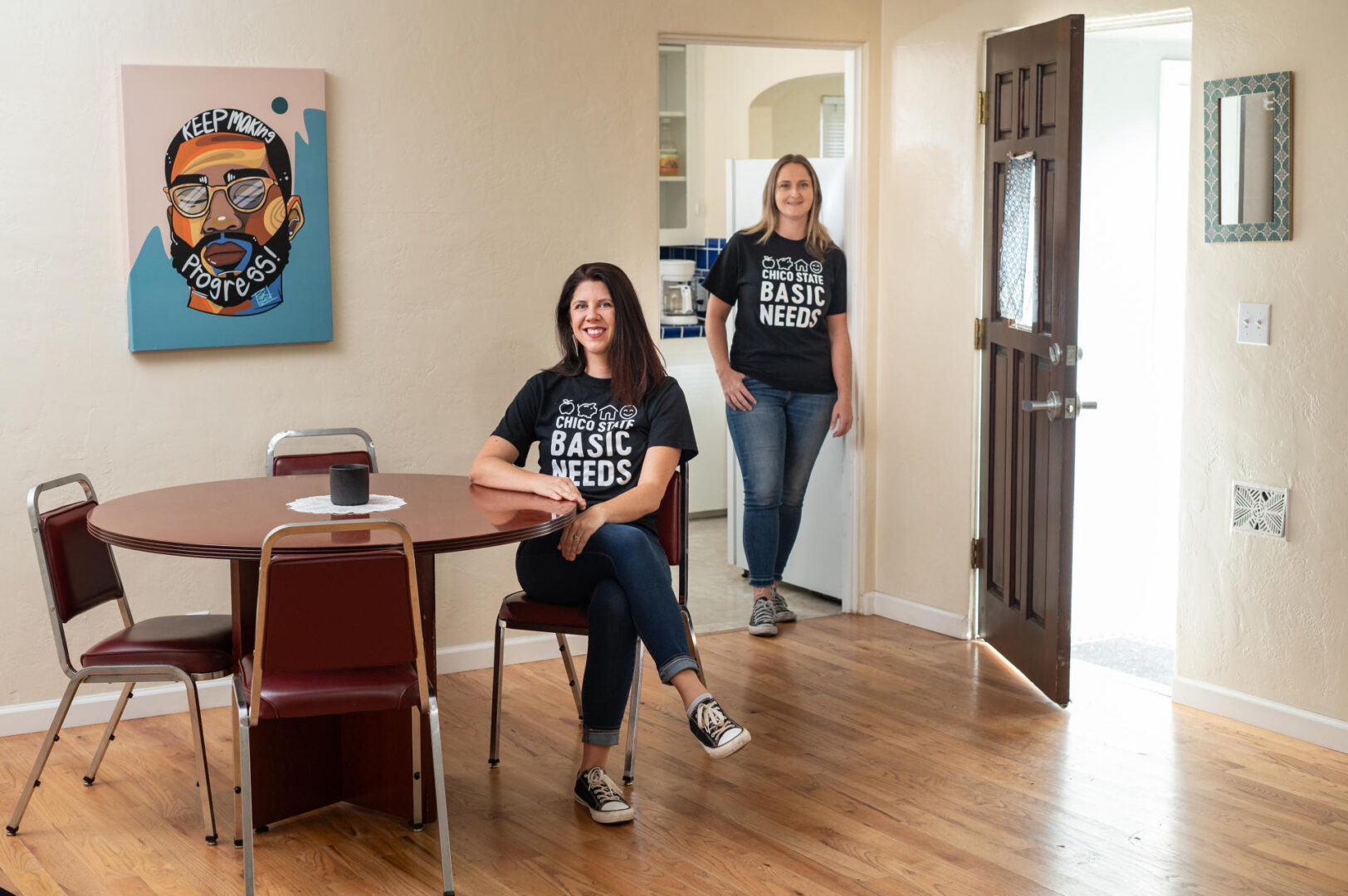
Students are also connected with the WellCat Counseling Center, are required to attend financial wellness clinics taught by the College of Business, and, if eligible, enrolled in CalFresh. While some students may only be facing financial challenges or roommate or partner disputes, others have additional challenges compounding their ability to secure housing and be successful in their pursuit of a degree.
“We work with students who have long-term mental health issues. We have students with substance abuse dependence and students who are experiencing chronic homelessness,” said Carini. “We also help them academically because they must stay at Chico State to access our services. It takes a lot of coordination and a lot of work to help support our students. We work with students for as long as it takes for them to be successful.”
Student parents, like Aguilar, are connected to county, state, and federal services, like CalWORKs and the Tenant-Based Rental Assistance program.
For 17 years, Aguilar had felt forced to live in an unsafe apartment complex with her two children because of her credit score and income as a single mother. After enrolling at Chico State, Basic Needs helped her secure a three-bedroom apartment in north Chico where she didn’t have to worry about the daily safety of her family.
“It gave me peace of mind and the motivation to keep going [at Chico State],” said Aguilar, a former foster youth.
After assessing a student’s needs, Jewett or Carini will determine how best to assist them and where to place them. CHAT, for example, helps prevent homelessness by working with local rental companies and property owners. The agency has housed 35 students since the program began, said Amber Benedict, CHAT’s director of social services.
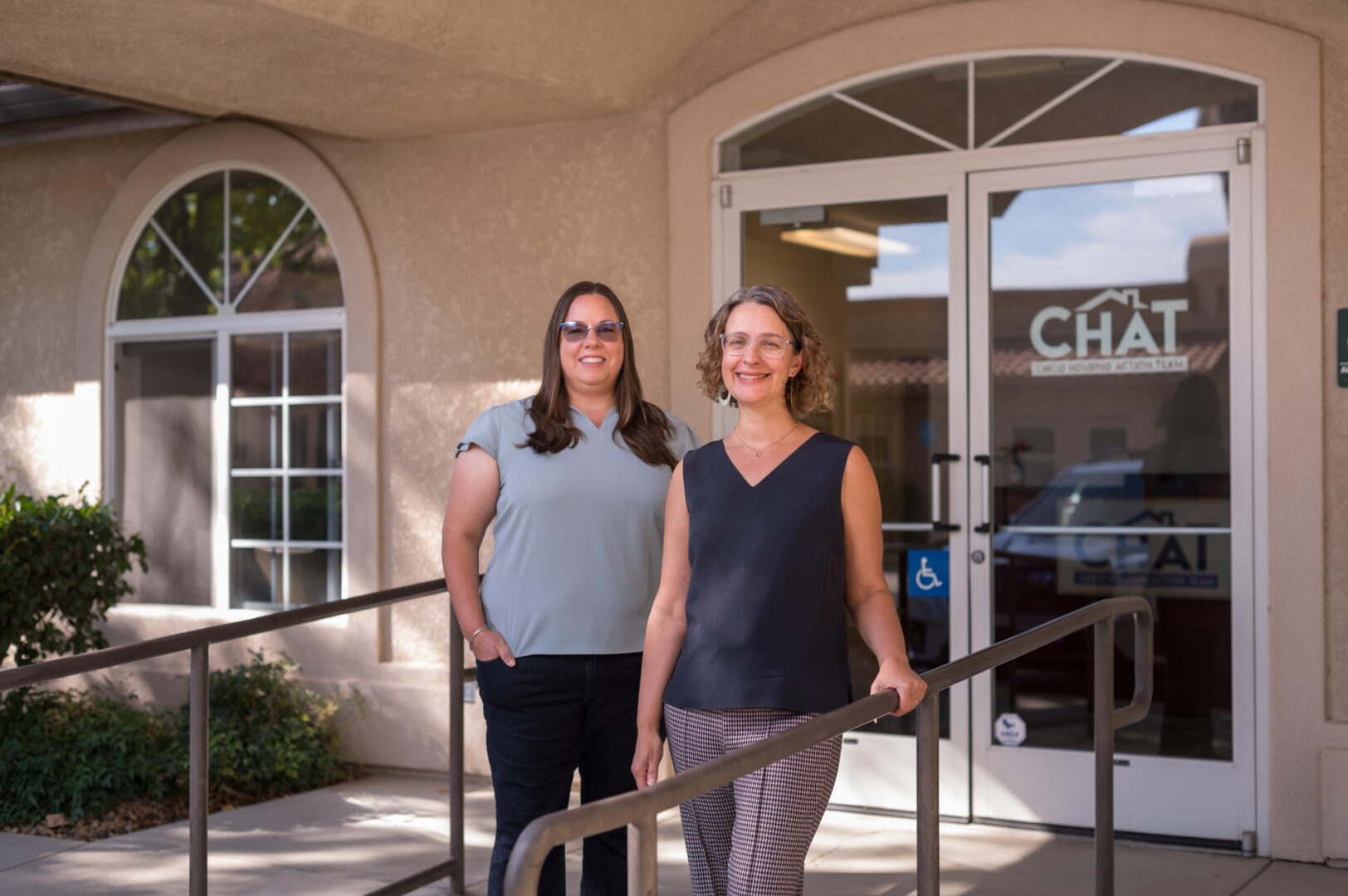
This summer alone, 13 students were placed in its homes. The agency secures properties for purchase or lease and removes barriers—cost, past evictions, and credit scores—and then rents them out to eligible clients.
Chico State’s first CHAT house opened in 2016. Through the state grant, the program has grown to five residences that can house up to 21 students with Basic Needs subsidizing their rent. The CHAT houses have capacity for four students each, which creates a more intimate and supportive environment, said Benedict (Social Work, ’20; MSW, ’21). Each student has their own room and is provided with basic furnishings, including a bed with pillows, sheets, and a comforter, as well as a dresser.
“We want them to open the door from day one and say, ‘OK. I can put my stuff away. I’m home,’” she said.
Taylor Bunch, executive director of True North, said her organization helps to prevent or quickly mitigate the impacts of homelessness on an emergency basis, providing short-term housing while they work to connect with resources like CHAT.
“If it weren’t for Basic Needs, if it weren’t for Emma Jewett, I honestly don’t know where I’d be.”
Luis Torres (Construction Management, ’23)
When Luis Torres (Construction Management, ’23) found himself in an unsafe living environment, he confided in his faculty advisor and his sister—a recent Chico State graduate— who told him about Rapid Re-housing.
“I filled out the application with Basic Needs, and they got right back to me,” Torres said.
He spent two nights in a hotel, funded by the program, and was moved to an emergency shelter for a few nights. One week after initially reaching out, he was in a new house, where he stayed for the rest of the semester, long enough to finish the semester and remain on a path to graduation. Today, he’s working as a project manager at a specialty contracting firm in Sacramento.
“If it weren’t for Basic Needs, if it weren’t for Emma Jewett, I honestly don’t know where I’d be,” he said. “I’ll always be grateful.”
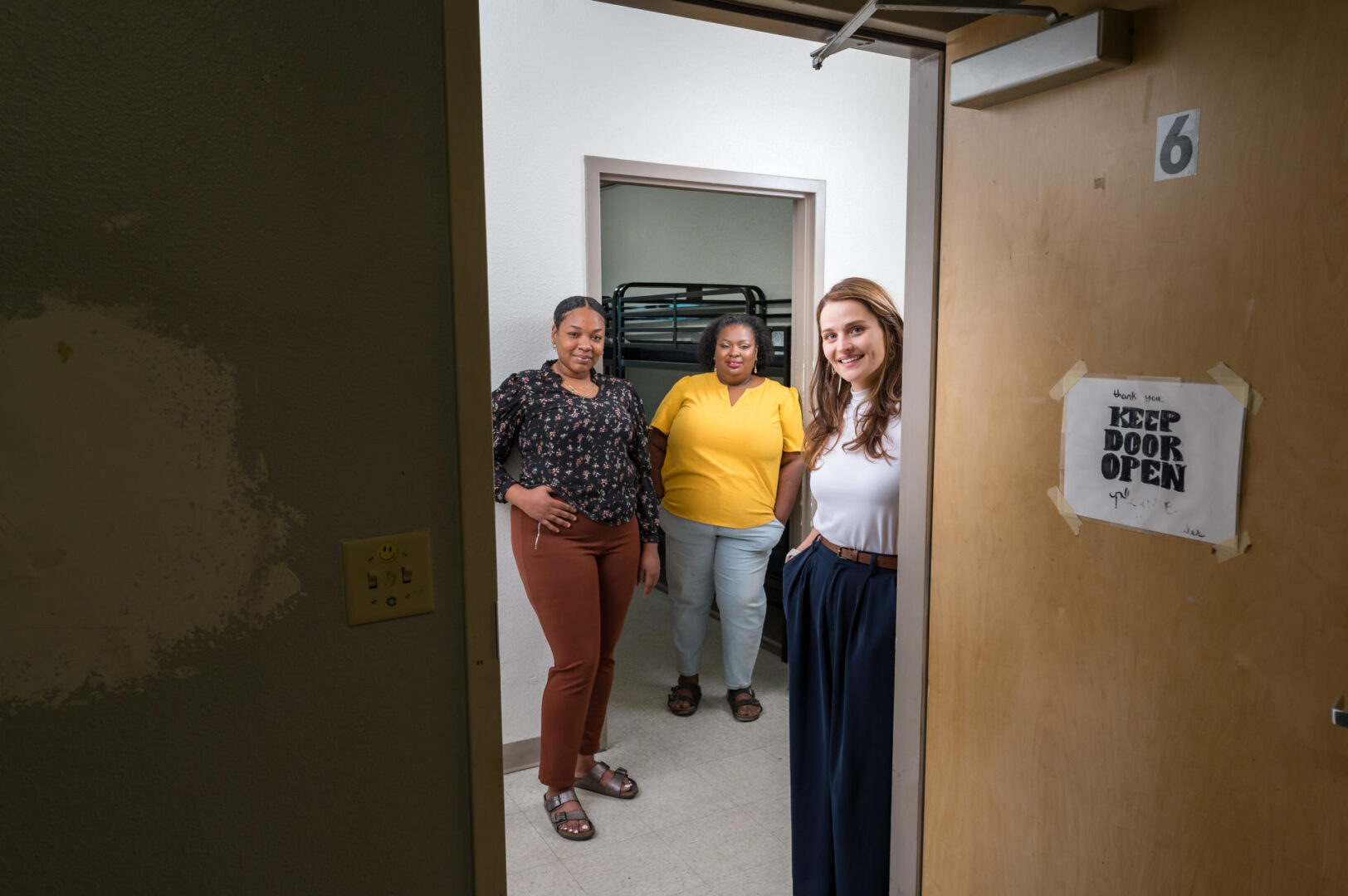
Basic Needs also assists students forced out of their homes by disasters. During Commencement weekend in spring 2023, six students were displaced by an apartment fire. Basic Needs activated its incident command and quickly identified and supported students in need of housing. The program previously secured housing for 48 students who lost their homes during the Camp Fire in 2018, and in April 2019, it helped 60 students who were flooded out of their apartments.
ROOM TO GROW
Students are supported by the Rapid Re-housing program until they complete their degrees. To set Rapid Re-Housing clients up for long-term success and stability, Jewett, Carini, and True North and CHAT case managers work with students for six months or longer before graduation.
“It’s not successful to simply have them leave,” said Nicole Drummond, executive director of CHAT. “The entire time they’re in the program, we are helping them to graduate and transition successfully. We spend a lot of time making sure that exciting moment of graduation transitions into some kind of stability as quickly as possible so when those supports are taken away, they don’t just fall down.”
With the state grant, students receive money for a security deposit. The goal is to present them the funds when they graduate, so they either have enough money for a deposit or have seed money as they transition on their own. Students who graduate and enter Chico State’s grad programs may remain in Rapid Re-housing.
Picard’s big dream is to invest in and master lease more shelter houses, eviction prevention, and track down vulnerable students before they are on anyone’s radar. Rapid re-housing is a powerful retention tool, he said. The sooner students can be intercepted, the sooner support can be provided, and the greater the likelihood they will persist through their college journey.
“Homelessness is a systemic issue, and we’re filling a gap,” said Jewett. “It’s going to take a lot more communities coming together and people advocating for change before we stop seeing students in this situation.”


